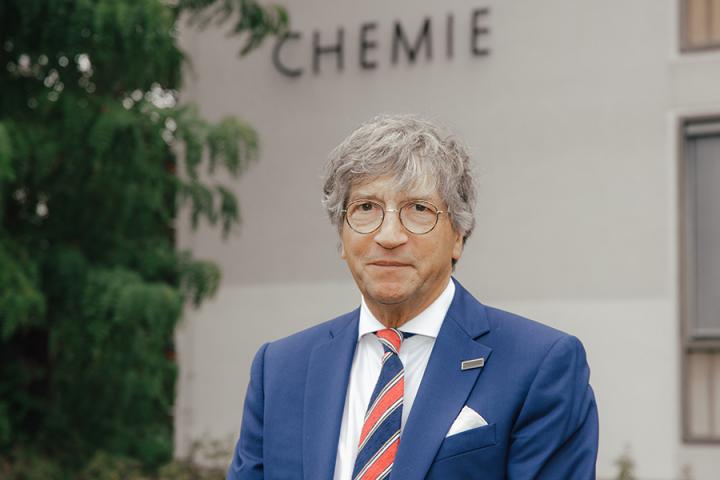Chemists succeed in artificially manufacturing important building blocks for mRNA vaccines
Chemists at Otto von Guericke University Magdeburg have, in collaboration with colleagues from CordenPharma, succeeded for the first time in manufacturing pharmaceutical cholesterol from plant-based materials using a highly-effective technique. This means that in future it will be possible to supply large quantities of the molecule that is urgently needed for the production and administration of modern mRNA-based vaccines in order to be able to combat the COVID-19 pandemic worldwide.
Cholesterol is an important part of the “lipid cocktail” that is required for administering the finished vaccine. Lipids (Greek, fats) are a collective name for natural substances that are largely insoluble in water, which, together with the mRNA fragment, form so-called lipid nanoparticles (LNP), which ultimately smuggle the vaccine into the cells. “The cholesterol that we have now succeeded in producing synthetically is highly relevant, as it stabilizes the lipid nanoparticles and enables the release of the vaccine into the cytosol in the cells,” explains Professor Dr. rer. nat. Dieter Schinzer from the Institute of Chemistry in the Faculty of Process and Systems Engineering at the University of Magdeburg.
At present the majority of the cholesterol needed for industrial processes comes from animal sources: either through extraction from lanolin or from animal tissues. From human and veterinary medical products, there is a risk of transmitting spongiform encephalopathy (TSE), a disorder that causes
irreversible brain damage. “If cholesterol is produced from plant-based materials, such impurities and contamination cannot occur,” says Schinzer. “This production process is an important step towards overcoming the shortage of lipids in the production of the lifesaving vaccines needed across the world in order to successfully combat the pandemic,” explains the chemist.
At present, various lipids are manufactured on a large scale at CordenPharma, but until now, cholesterol was missing from its “toolkit”, continues the scientist. “To complete the toolkit, the project leader, Dr. Lionel Roux from CordenPharma, began research into developing cholesterol synthesized from plant-based materials. Out of the long-established cooperation between my department and the company, a large study was set up to look into possible cholesterol manufacturing scenarios,” explains Professor Schinzer. At the end of last year the team of researchers succeeded for the first time in quickly and easily synthesizing cholesterol. Professor Schinzer adds, “After some very tough day and night shifts in the laboratory and various brainstorming sessions with all of the teams involved, the doctoral student Maxim Munt and Dr. Oliver Spiess from my team achieved a breakthrough, succeeding in synthesizing the first gram quantities of plant-based cholesterol.”
Matthieu Giraud, PhD, Director of Global Peptides, Lipids & Carbohydrates at CordenPharma, explains: “This innovative and cost-competitive production from plant-based materials, which was developed in collaboration with Otto von Guericke University Magdeburg, supplies high-purity cholesterol (BotaniChol®) for mRNA vaccines. In addition to our standard lipids such as phosphocholine, PEGylated and cationic lipids, BotaniChol® very nicely complements the lipid range for mRNA vaccine manufacturers around the world who are working to successfully combat the pandemic.”
The cholesterol obtained through this new process has already been registered under the BotaniChol® trade name and a patent has been applied for.
###
Media Contact
Prof. Dr. rer. nat. Dieter Schinzer
[email protected]





